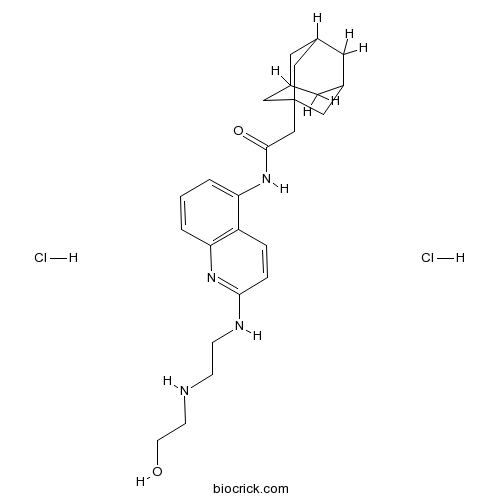Membrane Transporter/Ion Channel
Ion channels are pore-forming membrane proteins whose functions include establishing a resting membrane potential, shaping action potentials and other electrical signals by gating the flow of ions across the cell membrane, controlling the flow of ions across secretory and epithelial cells, and regulating cell volume. Ion channels are present in the membranes of all cells. Ion channels are one of the two classes of ionophoric proteins, along with ion transporters (including the sodium-potassium pump, sodium-calcium exchanger, and sodium-glucose transport proteins)
Products for Membrane Transporter/Ion Channel
- P2X purinergic receptor(31)
- Calcium Channel(77)
- Potassium Channel(80)
- NMDA Receptor(80)
- Sodium Channel(43)
- ATPase(32)
- TRP Channel(44)
- Proton Pump(12)
- AMPAR(49)
- GABA Receptor(103)
- Glycine Transporters(6)
- Chloride Channels(11)
- Glutamate (EAAT) Transporters(19)
- GTPase(7)
- Other Channel Modulators(7)
- CFTR(10)
- Multidrug Transporters(4)
- M2 ion Channel(1)
- Monoamine transporter(4)
- P-gp(6)
- TRPV1(4)
- MCT(2)
- Na+/Ca2+ Exchanger(7)
- Cannabinoid Transporters(7)
- Nucleoside Transporters(3)
- Lipophilic platinum complex(1)
- Monocarboxylate Transporters(1)
- NKCC(2)
- Gardos Channel(1)
- Glycine Receptors(1)
- MCT2(2)
- Glucose Transporters(1)
- ICB(2)
- GlyT1(2)
- Kv1.3(1)
- URAT1(1)
- Cat.No. Product Name Information
-
BCC1847
Perampanel

-
BCC4297
Minoxidil
Minoxidil (U10858) is an ATP-sensitive potassium (KATP) channel opener, a potent oral antihypertensive agent and a peripheral vasodilator that promotes vasodilation also affects hair growth. Minoxidil is also a potent inhibitor of soybean lipoxygenaseare with an IC50 of 20 μM.

-
BCC7397
Ganaxolone

-
BCC7106
(S)-CPW 399

-
BCC7233
GS 39783

-
BCC7217
UCM 707
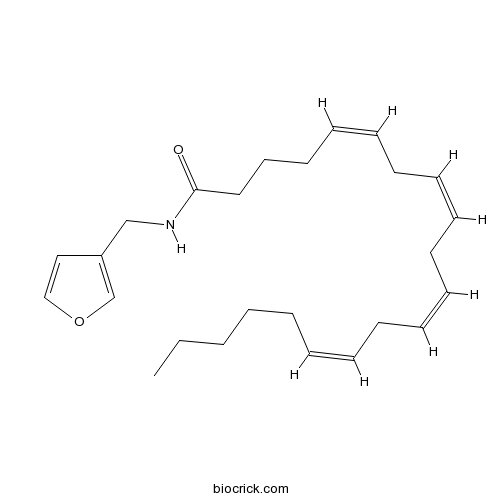
-
BCC7797
BCTC
BCTC is a potent and specific inhibitor of transient receptor potential cation channel subfamily M member 8 (TRPM8) in prostate cancer (PCa) DU145 cells.

-
BCC4381
Nitrendipine
Nitrendipine is a calcium channel blocker with marked vasodilator action.

-
BCC5074
Triamterene
Triamterene blocks epithelial Na+ channel (ENaC) in a voltage-dependent manner, which used as a mild diuretic.

-
BCC7743
SKA 31
SKA-31 is a potent potassium channel activator with EC50s of 260 nM, 1.9 μM, 2.9 μM, and 2.9 μM for KCa3.1, KCa2.2, KCa2.1 and KCa2.3, respectively. SKA-31 potentiates endothelium-derived hyperpolarizing factor response and lowers blood pressure.

-
BCC7484
NFPS
NFPS is a selective, non-competitive glycine transporter-1 (GlyT1) inhibitor with IC50s of 2.8 nM and 9.8 nM for hGlyT1 and rGlyT1, respectively. NFPS exerts neuroprotection via glyR alpha1 subunit in the rat model of transient focal cerebral ischaemia and reperfusion.

-
BCC7387
(-)-Bicuculline methiodide
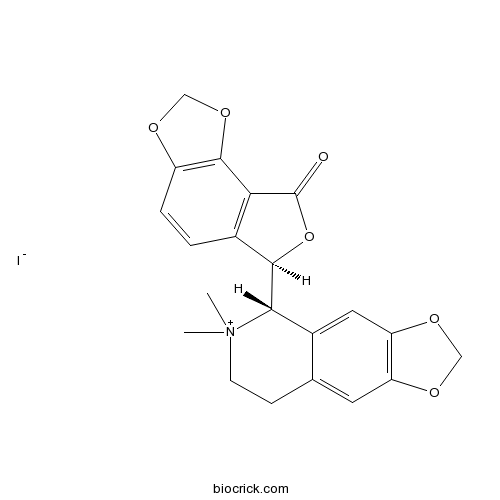
-
BCC6314
CaCCinh-A01
CaCCinh-A01 is an inhibitor of both TMEM16A and calcium-activated chloride channel (CaCC) with IC50s of 2.1 and 10 μM, respectively.

-
BCC1807
NP118809
NP118809 is a potent N-type calcium channel blocker, with an IC50 of 0.11 μM; also less potently inhibits L-type calcium channel with an IC50 of 12.2 μM.
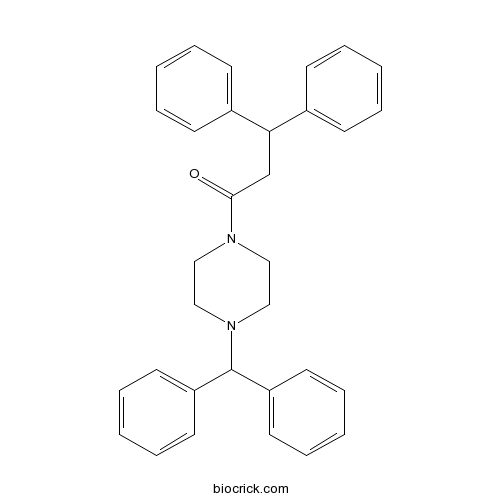
-
BCC7273
SN-6
SN 6 is a selective Na+/Ca2+ exchanger (NCX) inhibitor, and inhibits 45Ca2+ uptake by NCX1, NCX2, and NCX3, with IC50s of 2.9, 16, and 8.6 μM, respectively.
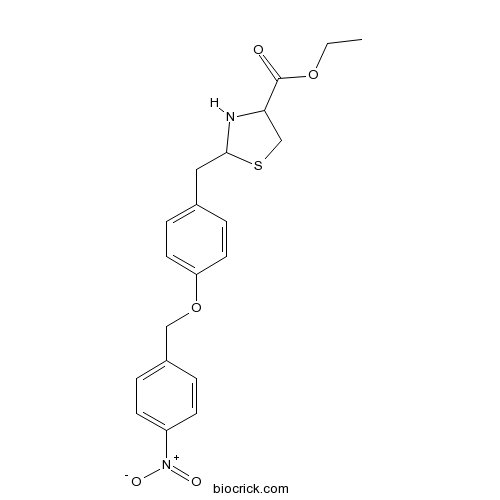
-
BCC4372
Ciclopirox ethanolamine
Ciclopirox olamine is a synthetic antifungal agent for topical dermatologic treatment of superficial mycoses.

-
BCC7872
NS 5806
NS5806, a potent potassium current activator, increases KV4.3/KChIP2 peak current amplitudes with an EC50 of 5.3 μM. NS5806 slows KV4.3 and KV4.2 current dacay in channel complexes containing KChIP2.
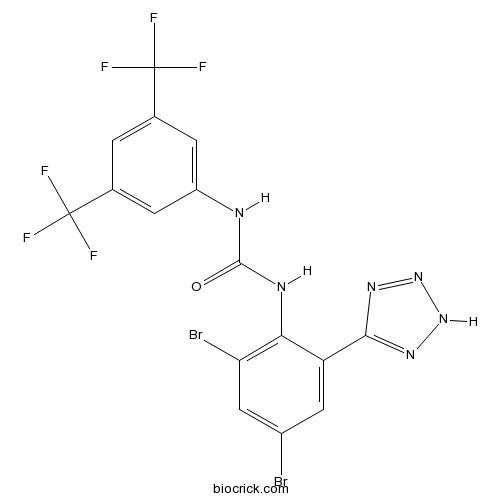
-
BCC7398
DPO-1
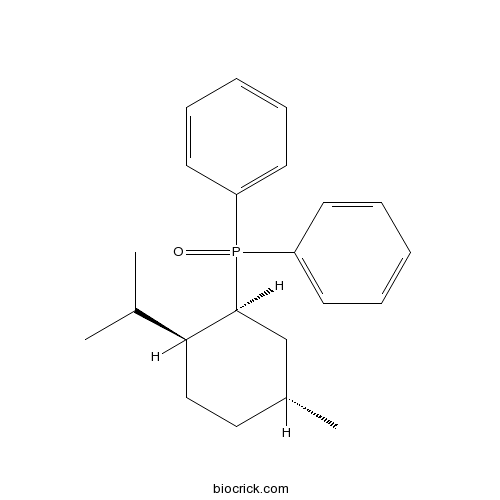
-
BCC7070
O-2093

-
BCC7552
NS 1643
NS1643 is a partial agonist of human ether-a-go-go-related gene (hERG) K(+) channels with an EC50 of 10.5 μM.
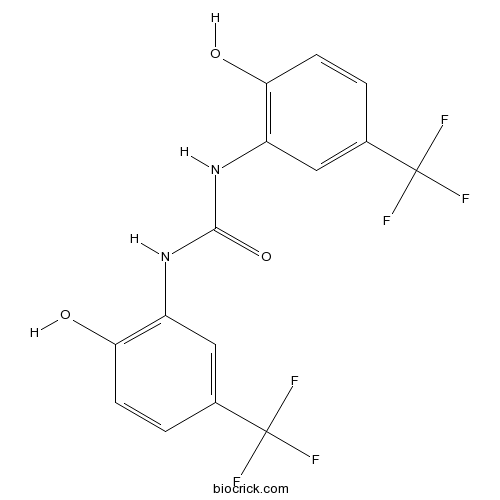
-
BCC7620
SB 452533
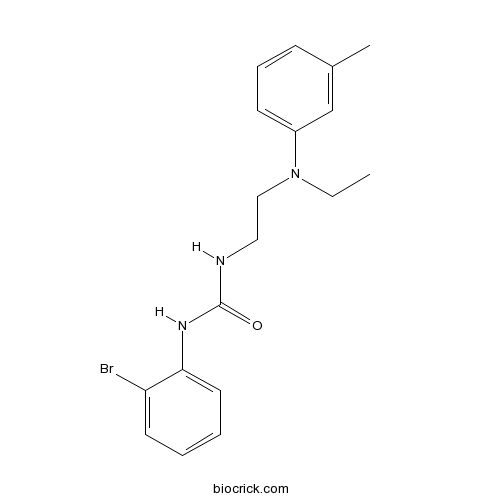
-
BCC6313
Eact
Eact is a selective and potent activator of TMEM16A, directly activates the TRPV1 channels in sensory nociceptors and produces itch, acute nociception and thermal hypersensitivity.
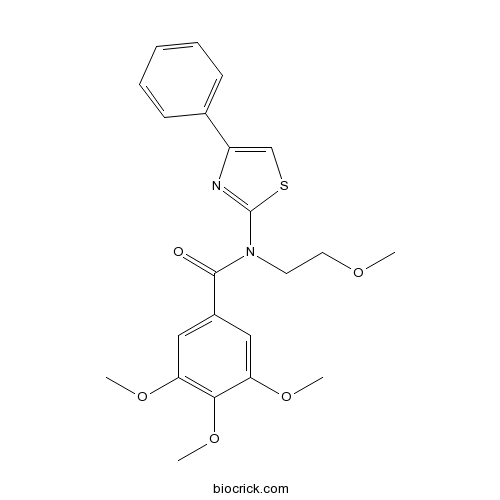
-
BCC7128
SB 366791
SB-366791 is a potent , competitive and selective vanilloid receptor (VR1/TRPV1) antagonist with IC50 of 5.7±1.2 nM target: VR1/TRPV1 IC 50: 5.7±1.2 nM [1] SB-366791 produced a concentration-dependent inhibition of the response to capsaicin with an apparent pKb of 7.74±0.08.

-
BCC5632
Tolbutamide Sodium
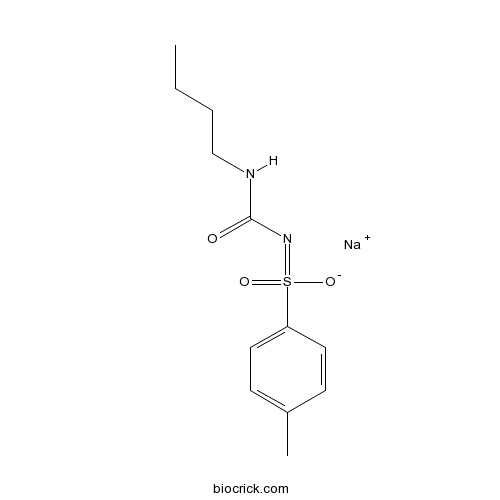
-
BCC1320
A-317491
A-317491 is a non-nucleotide P2X3 and P2X2/3 receptor antagonist, which inhibits calcium flux mediated by the receptors.
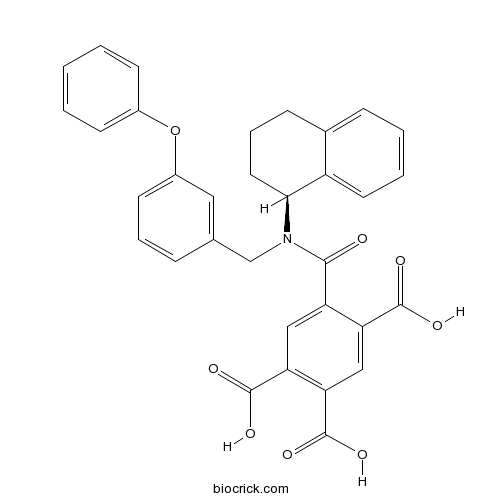
-
BCC6566
cis-ACPD

-
BCC4239
Gabapentin enacarbil
Gabapentin enacarbil (XP-13512) is a prodrug for the anticonvulsant and analgesic drug gabapentin.

-
BCC7048
CP 339818 hydrochloride
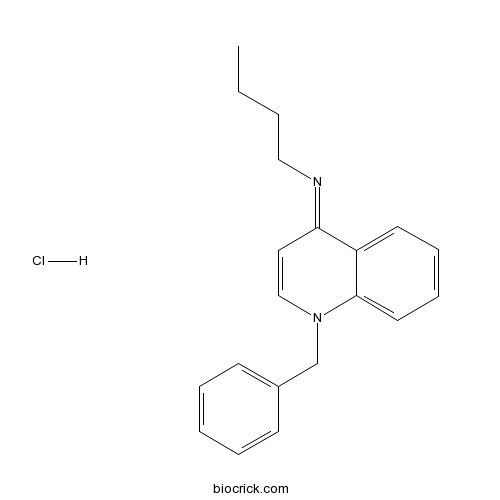
-
BCC6908
CNQX disodium salt

-
BCC6907
NBQX disodium salt

-
BCC5919
TFB-TBOA

-
BCN5564
alpha-Spinasterol
α-Spinasterol, isolated from Spinacia oleracea, has antibacterial activity. α-Spinasterol is a transient receptor potential vanilloid 1 (TRPV1) antagonist, has anti-inflammatory, antidepressant, antioxidant and antinociceptive effects. α-Spinasterol inhibits COX-1 andCOX-2 activities with IC50 values of 16.17 μM and 7.76 μM, respectively.
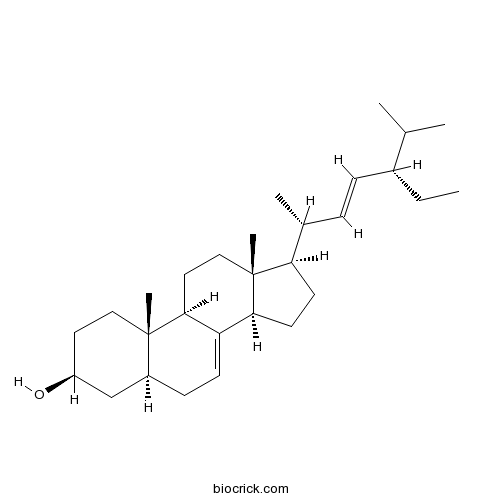
-
BCC7989
9-Phenanthrol

-
BCC6255
ProTx I
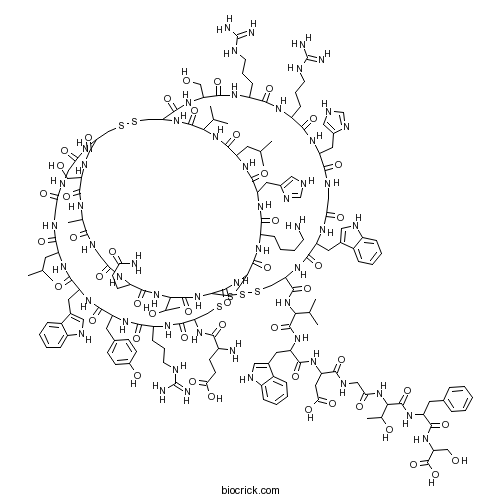
-
BCC6103
ProTx II
ProTx II is a selective blocker of Nav1.7 sodium channels with an IC50 of 0.3 nM, and is at least 100-fold selective for Nav1.7 over other sodium channel subtypes. ProTx-II inhibits sodium channels by decreasing channel conductance and shifting activation to more positive potentials and blocks action potential propagation in nociceptors.
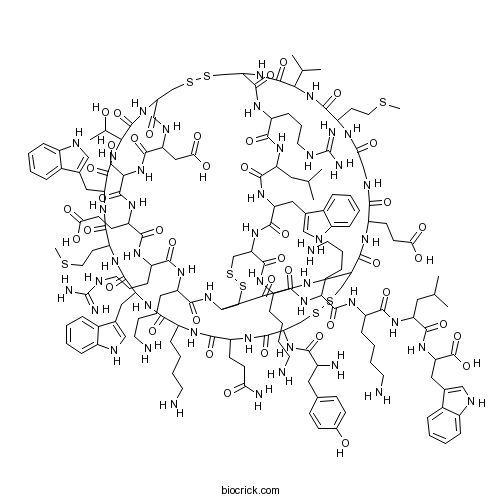
-
BCC7862
CIQ
CIQ is a subunit-selective potentiator of NMDA receptors containing the NR2C or NR2D subunit.

-
BCC6367
Ononetin
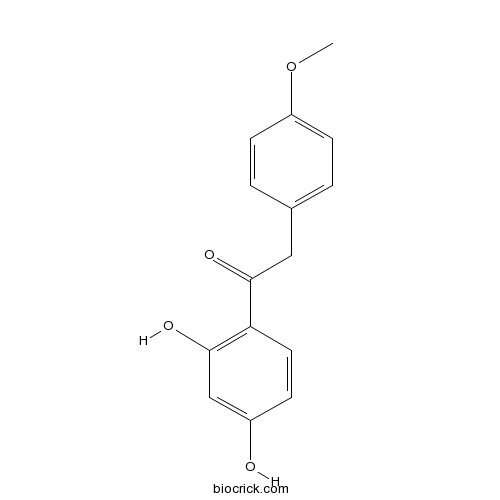
-
BCC6213
ML 213
ML213 is a selective activator of Kv7.2 and Kv7.4 channels, enhances Kv7.2 and Kv7.4 channels with EC50s of 230 and 510 nM, respectively.

-
BCC6570
Homoquinolinic acid
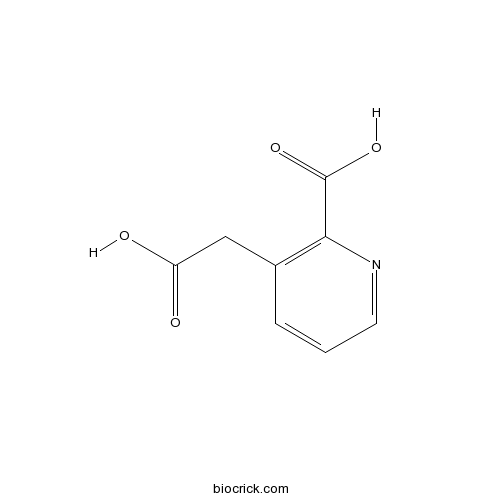
-
BCC6288
Org 25543 hydrochloride
Potent and selective GlyT2 inhibitor
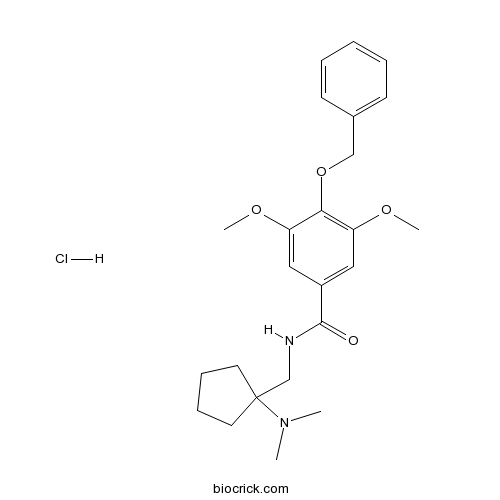
-
BCC1367
AR-C155858
AR-C155858 is a selective monocarboxylate transporter MCT1 and MCT2 inhibitor with Kis of 2.3 nM and 10 nM, respectively.
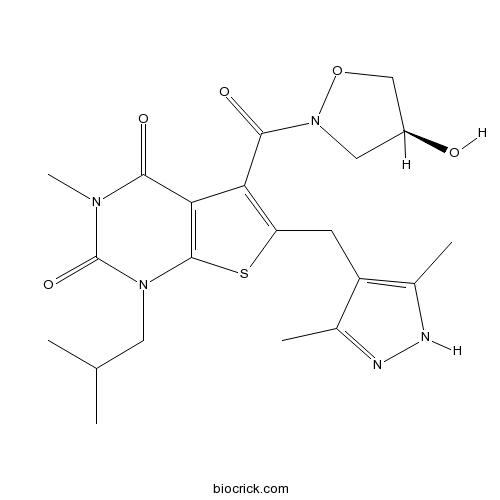
-
BCC3854
SB705498
SB-705498 is a potent, selective and orally bioavailable transient receptor potential vanilloid 1 (TRPV1) receptor antagonist with a pIC50 of 7.1.
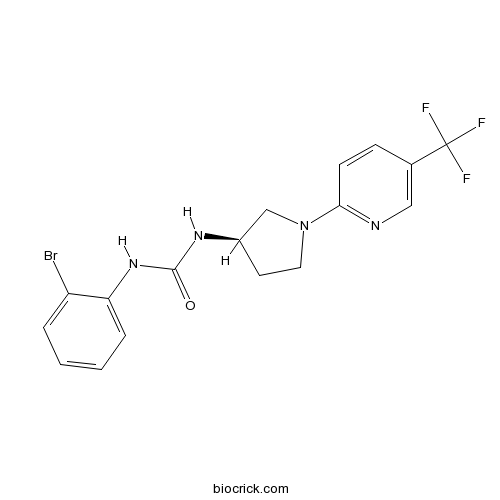
-
BCC5267
4-Aminopyridine
4-Aminopyridine is a nonselective K+ channel blocker that binds from the cytoplasmic side of the cell membrane.
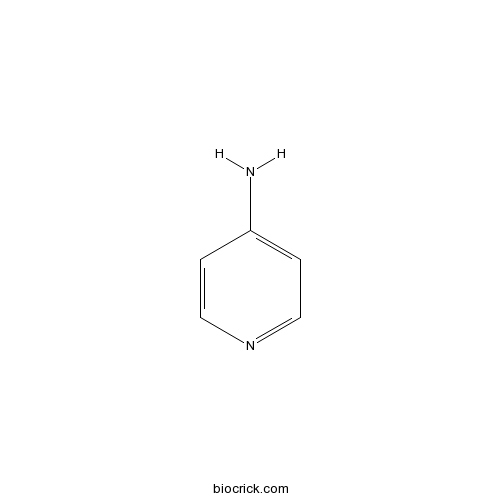
-
BCC5553
7ACC1
7ACC1(DEAC; Coumarin D 1421; D 1421) selectively interfere with lactate fluxes in the lactate-rich tumor microenvironment; inhibits lactate influx but not efflux in tumor cells expressing MCT1 and MCT4 transporters.
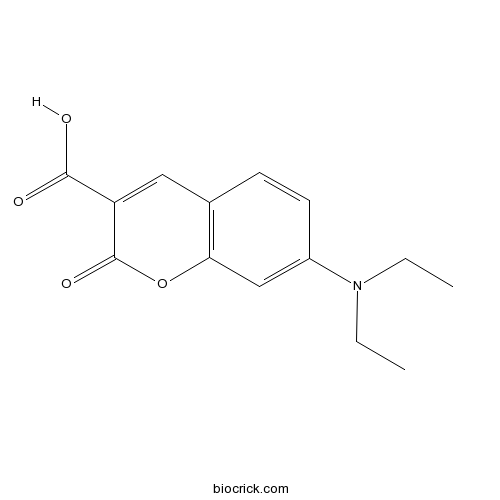
-
BCC5072
Procaine HCl
Procaine is an inhibitor of sodium channel, NMDA receptor and nAChR with IC50 of 60 μM, 0.296 mM and 45.5 μM, which is also an inhibitor of 5-HT3 with KD of 1.7 μM.

-
BCC7737
Allopregnanolone
GABAA receptor positive allosteric modulator
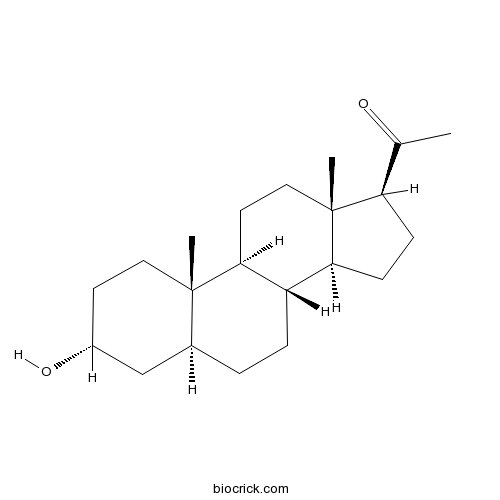
-
BCC6794
NCS-382
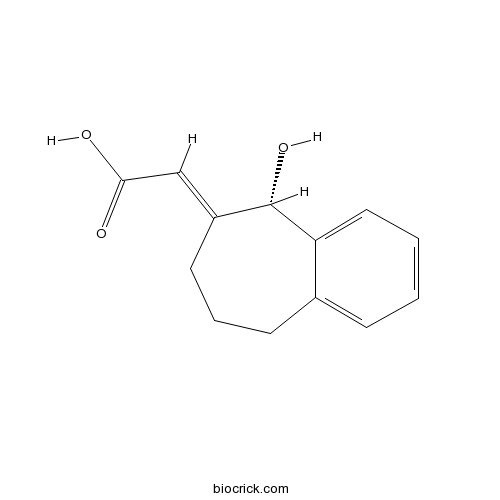
-
BCC6978
2-APB
2-Aminoethyl diphenylborinate (2-APB) is a cell-permeable inhibitor of IP3R. 2-Aminoethyl diphenylborinate also inhibits the store-operated Ca2+ (SOC) channel and activates some TRP channels (V1, V2 and V3).

-
BCC6556
Dihydrokainic acid

-
BCC6270
Huwentoxin IV

-
BCC6980
A23187, free acid
Calcimycin (A-23187) is an antibiotic and a unique divalent cation ionophore (like calcium and magnesium). Calcimycin induces Ca2+-dependent cell death by increasing intracellular calcium concentration. Calcimycin inhibits the growth of Gram-positive bacteria and some fungi. Calcimycin also inhibits the activity of ATPase and uncouples oxidative phosphorylation of mammalian cells. Calcimycin induces apoptosis.

-
BCC6568
L-Quisqualic acid

-
BCN2202
Dehydroepiandrosterone
DHEA (Prasterone) is one of the most abundant steroid hormones. DHEA (Prasterone) mediates its action via multiple signaling pathways involving specific membrane receptors and via transformation into androgen and estrogen derivatives (e.g., androgens, estrogens, 7α and 7β DHEA, and 7α and 7β epiandrosterone derivatives) acting through their specific receptors.
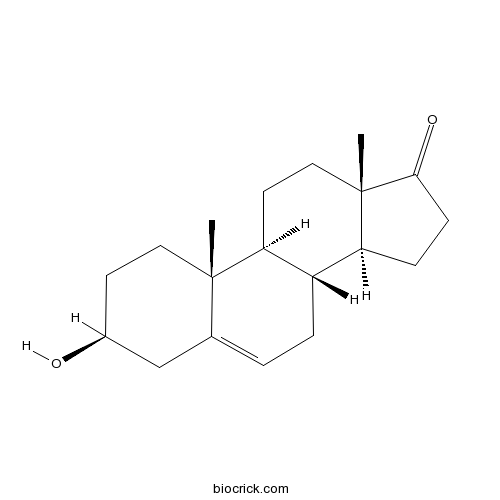
-
BCC4255
Etomidate hydrochloride
Etomidate Hcl(R16659 Hcl) is a GABAA receptors agonist, which is a short acting intravenous anaesthetic agent used for the induction of general anaesthesia.

-
BCN3763
(-)-Bicuculline methochloride
(-)-Bicuculline methochloride (l-Bicuculline methochloride) is a potent GABAA receptor antagonist. (-)-Bicuculline methochloride blocks afterhyperpolarizations (AHPs) mediated by Ca2+-activated K+ channels in various types of neurons.
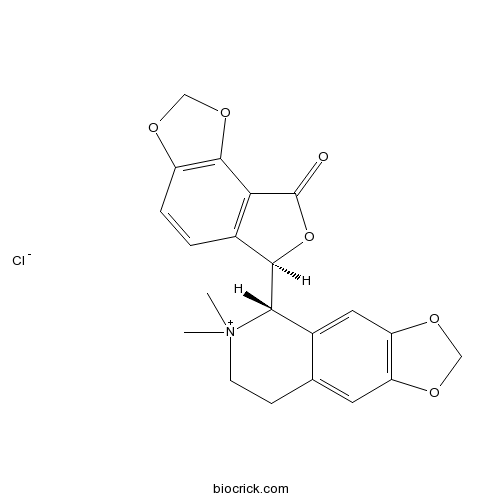
-
BCC7031
5'-Iodoresiniferatoxin

-
BCC6351
GMQ hydrochloride

-
BCC6906
QX 222

-
BCC7326
QX 314 chloride
QX-314 chloride is a membrane-impermeable permanently charged sodium channel blocker.
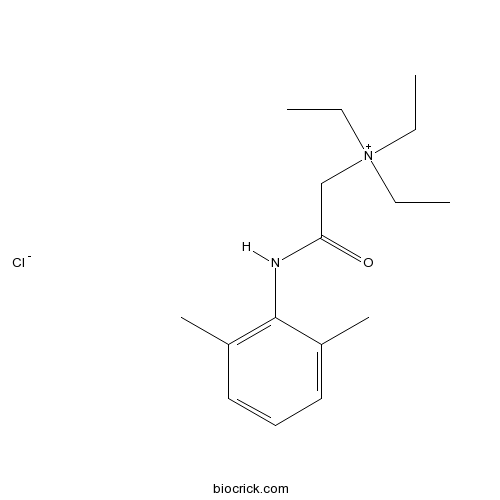
-
BCC3782
Furosemide
Furosemide is a loop diuretic inhibitor of Na+/2Cl-/K+ (NKCC) cotransporter of which used in the treatment of congestive heart failure and edema.

-
BCC7453
Pentylenetetrazole

-
BCC1578
Flecainide acetate
Flecainide acetate (R-818) is a class 1C antiarrhythmic drug especially used for the management of supraventricular arrhythmia; works by blocking the Nav1.5 sodium channel in the heart, causing prolongation of the cardiac action potential.

-
BCC7198
MRS 1845
MRS1845 is a selective store-operated calcium (SOC) channel inhibitor with an IC50 of 1.7 μM. MRS1845 is an ORAI1 inhibitor.

-
BCC7171
UBP 282
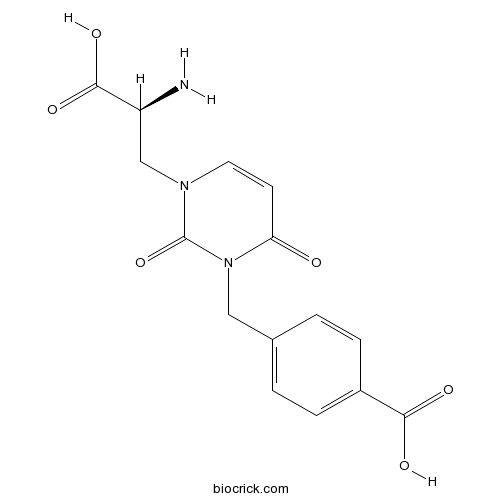
-
BCC7329
AMG 9810
AMG9810 is a selective and competitive vanilloid receptor 1 (TRPV1) antagonist with IC50 values of 24.5 and 85.6 nM for human and rat TRPV1, repectively.

-
BCC6272
ML 204
ML204 is a novel potent antagonist that selectively modulates native TRPC4/C5 ion channels.

-
BCC7808
NAADP tetrasodium salt
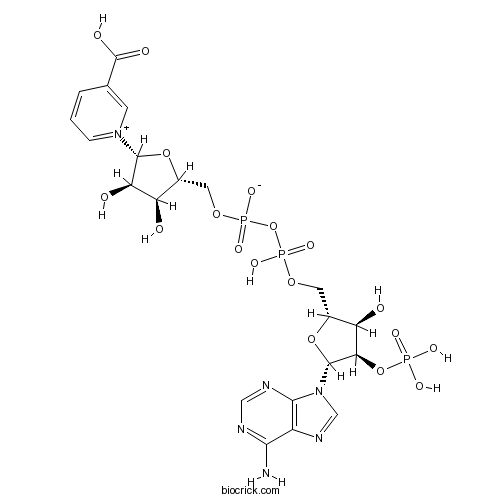
-
BCC7634
AP 18
Reversible TRPA1 channel blocker
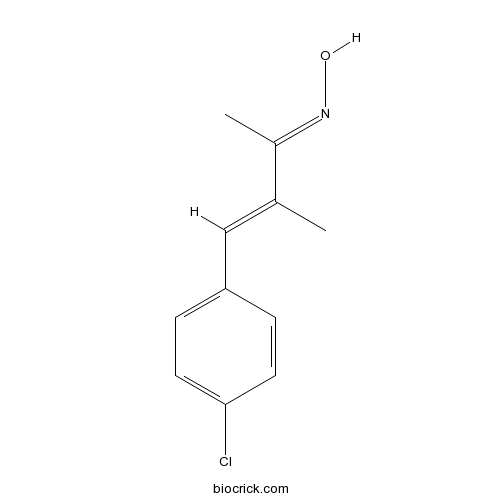
-
BCC6220
T16Ainh - A01
T16Ainh-A01, an aminophenylthiazole, is a potent transmembrane protein 16A (TMEM16A) inhibitor, inhibiting TMEM16A-mediated chloride currents with an IC50 value of ~1 µM. TMEM16A (ANO1) functions as a calcium-activated chloride channel (CaCC).

-
BCC7970
Lithium carbonate

-
BCC6123
TCN 213
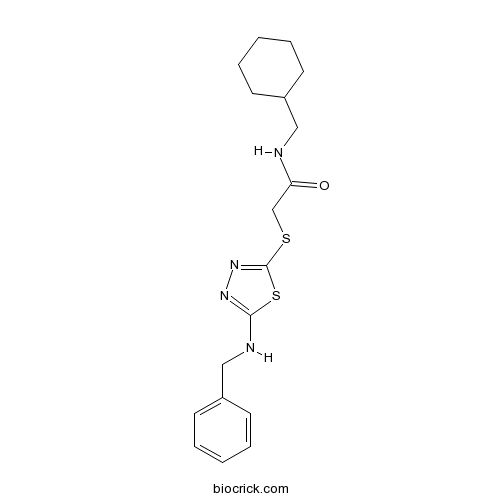
-
BCC7554
Tetraethylammonium chloride
Non-selective K+ channel blocker

-
BCC7863
Quinidine
Quinidine is an antiarrhythmic agent for the treatment of abnormal heart rhythms and also malaria.

-
BCC7261
Ionomycin free acid
Ionomycin (SQ23377) is a potent, selective calcium ionophore and an antibiotic produced by Streptomyces conglobatus. Ionomycin (SQ23377) is highly specific for divalent cations (Ca>Mg>Sr=Ba). Ionomycin (SQ23377) promotes apoptosis. Ionomycin also induces the activation of protein kinase C (PKC).
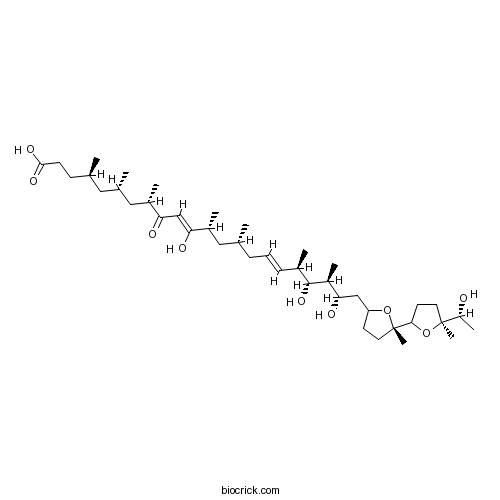
-
BCC5805
Ionomycin calcium salt
Ionomycin calcium (SQ23377 calcium) is a potent, selective calcium ionophore and an antibiotic produced by Streptomyces conglobatus. Ionomycin calcium (SQ23377 calcium) is highly specific for divalent cations (Ca>Mg>Sr=Ba). Ionomycin (SQ23377) promotes apoptosis. Ionomycin calcium (SQ23377 calcium) also induces the activation of protein kinase C (PKC).

-
BCC7097
CGP 13501
Positive modulator at GABAB receptors
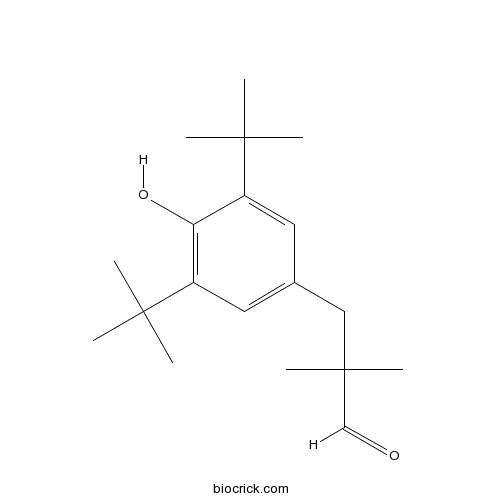
-
BCC2021
UK-5099
UK-5099 (PF-1005023) is a potent inhibitor of the mitochondrial pyruvate carrier (MPC). UK-5099 (PF-1005023) inhibits pyruvate-dependent O2 consumption with an IC50 of 50 nM.
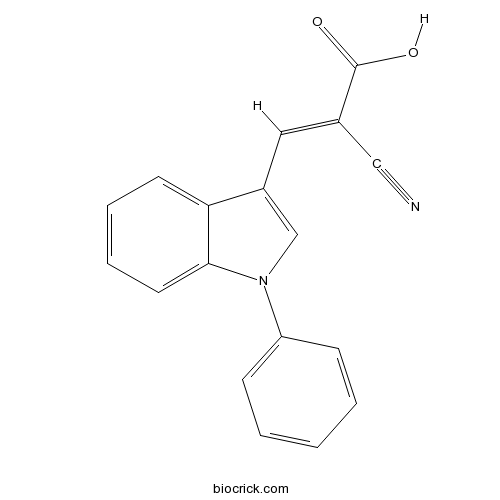
-
BCC1561
Etifoxine hydrochloride
Etifoxine hydrochloride (HOE 36-801 hydrochlorid) is potentiator of GABAA receptor function in cultured neurons.
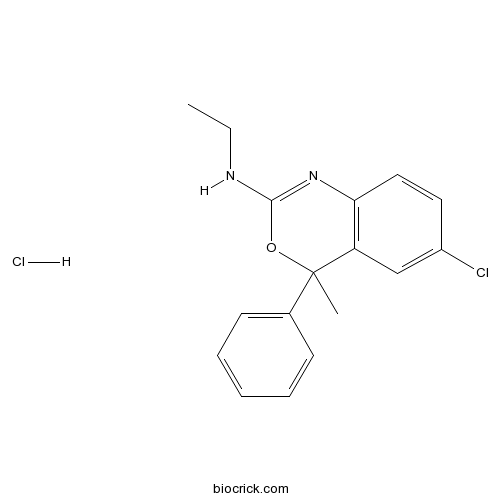
-
BCC4282
Flupirtine
Flupirtine(D 9998) is a selective neuronal potassium channel opener that also has NMDA receptor antagonist properties.

-
BCC6230
Phenobarbital sodium salt
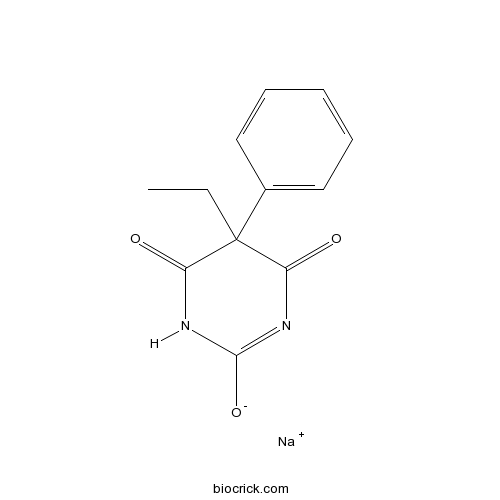
-
BCC6231
Pentobarbital sodium salt

-
BCC5070
Phenytoin
Phenytoin is an inactive voltage-gated sodium channel stabilizer.

-
BCC7978
Paprotrain
Paprotrain is a cell-permeable inhibitor of the kinesin MKLP-2, inhibits the ATPase activity of MKLP-2 with an IC50 of 1.35 μM and a Ki of 3.36 μM and shows a moderate inhibition activity on DYRK1A with an IC50 of 5.5 μM.
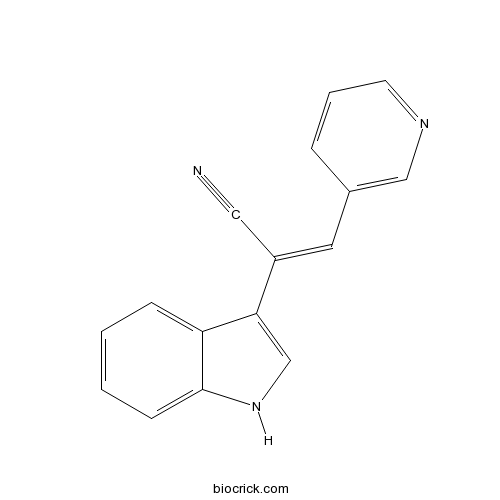
-
BCC7235
Paxilline
Paxilline is an indole alkaloid mycotoxin from Penicillium paxilli, acts as a potent BK channels inhibitor by an almost exclusively closed-channel block mechanism. Paxilline also inhibits the sarco/endoplasmic reticulum Ca2+ ATPase (SERCA) with IC50s between 5 μM and 50 μM for differing isoforms. Paxilline possesses significant anticonvulsant activity.

-
BCC7410
Calmidazolium chloride
Calmidazolium chloride (R 24571) is a calmodulin (CaMK) antagonist, antagonizing CaM-dependent phosphodiesterase and calmodulin-induced activation of erythrocyte Ca2+-transporting ATPase with IC50s of 0.15 and 0.35 μM, respectively. Also in anti-cancer research. Calmidazolium binds to CaMK with a Kd of 3 nM.

-
BCC8023
Congo Red
Congo red is an azo dye.

-
BCC6951
Resiniferatoxin

-
BCC7262
PNU 37883 hydrochloride

-
BCC7096
CGP 7930

-
BCC2530
Oligomycin A
Oligomycin A, created by Streptomyces, acts as a mitochondrial F0F1-ATPase inhibitor, with a Ki of 1 μM; Oligomycin A shows anti-fungal activity.

-
BCC7911
ICA 069673
ICA-069673 is a KCNQ2/Q3 potassium channel activator with an IC50 of 0.69 μM.
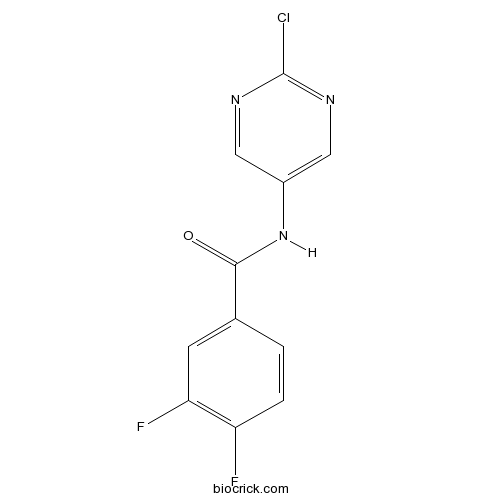
-
BCC6855
Olvanil

-
BCC5073
Proparacaine HCl
Proparacaine Hydrochloride is a voltage-gated sodium channels antagonist with ED50 of 3.4 mM.

-
BCC6830
Chlormethiazole hydrochloride

-
BCC4502
Gabapentin HCl
Gabapentin (Neurontin) is a pharmaceutical drug, specifically a GABA analog.

-
BCC6576
(±)-Nipecotic acid

-
BCC6574
Guvacine hydrochloride
Guvacine hydrochloride is an alkaloid from the nut of Areca catechu, acts as an inhibitor of GABA transporter, and dispalys modest selectivity for cloned GABA transporters with IC50s of 14 μM (human GAT-1), 39 μM (rat GAT-1), 58 μM (rat GAT-2), 119 μM (human GAT-3), 378 μM (rat GAT-3), and 1870 μM (human BGT-3).

-
BCC7027
P1075
P-1075 is a potent activator of sulfonylurea receptor 2-associated ATP-sensitive potassium channels (SUR2-KIR6), with an EC50 value of 45 nM for SUR2B-KIR6 channel activation. P-1075 also P1075 opens mitochondrial K(ATP) channels and generates reactive oxygen species resulting in cardioprotection of rabbit hearts.
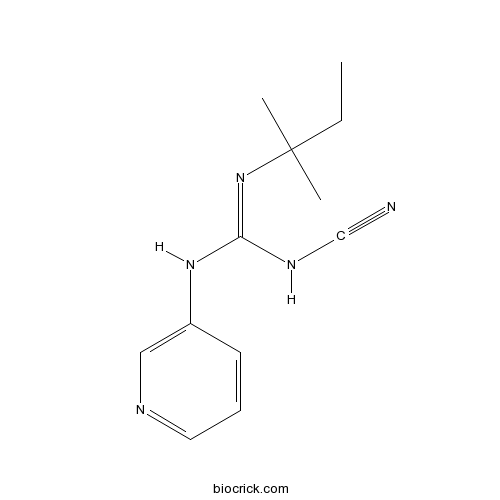
-
BCC7060
DCEBIO
DCEBIO, a derivative of 1-EBIO, is an extremely potent activator of Cl- secretion in T84 colonic cells. DCEBIO stimulates Cl- secretion via the activation of hIK1 K+ channels and the activation of an apical membrane Cl- conductance.

-
BCC6005
AZ 10606120 dihydrochloride
AZ10606120 dihydrochloride is a selective, high affinity antagonist for P2X7 receptor (P2X7R) at human and rat with an IC50 of ~10 nM. AZ10606120 dihydrochloride is little or no effect at other P2XR subtypes. AZ10606120 dihydrochloride has anti-depressant effects and reduces tumour growth.
